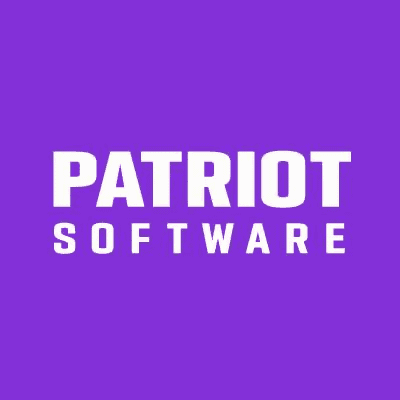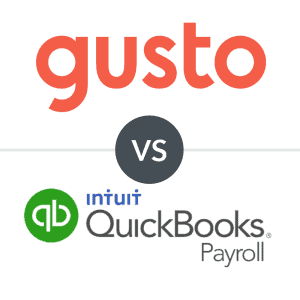Knowing when to add an HR team to your small business is important as you add employees and grow as a team. Here are some things to think about regarding HR and your small business.
For some people, knowledge of Human Resources begins and ends with Michael Scott’s relentless feud with HR-manager Toby during several cringe-worthy (and amusing) episodes of The Office. HR can seem like the prerogative of a bigger company, but not necessarily something a smaller business could benefit from. However, in reality, the role of HR is vast (and commonly misunderstood) and can operate as a bridge between your employees, you, and the practical side of having and managing people.
Wondering whether a Human Resources Manager, a full Human Resources Department, or an outsourced service is the best fit for your business?
Keep on reading to find out what HR is and whether or not your small business could benefit from adding human resources.
What Is HR?
HR, as a department within your business, is the branch of operations that is responsible for managing a company’s human resources (or human capital; or employees).
The Human Resources (HR) department streamlines many important facets of your business and becomes an important link between the leadership of a company and its employees. The umbrella term HR covers the various ways employees are led and developed within a business. For that reason, there are numerous avenues of expertise within HR itself or different ways an HR department can function within a small business.
In general, the tasks delegated to HR can include onboarding, hiring/firing, running payroll, managing employment laws and compliance, addressing employee complaints, running employee training programs, and analyzing job duties and descriptions. HR specialists can bring their own pet passions to a company, but in general, the tasks orbit around employee management and growth.
HR VS. HRM
Human Resources (HR) is the department set apart to manage employees and employment; Human Resource Management (HRM) is the approach to how a company manages its employees. Some of those management approaches are related to recruitment, hiring and firing, employee education and training, employment compliance, and maintaining company culture. An HR Management team will work with a company’s human resources (employees and leadership) to implement processes and set goals.
Sometimes, the terms are used interchangeably.
What Duties Does HR Fulfill?
From talent acquisition to letting people go, the HR department follows an employee’s life cycle and works with you, the small business owner, to manage your team effectively. An HR professional needs to be knowledgeable about the law and the specific niche requirements for your particular business.
A person working in HR wears many hats and often becomes a de facto counselor while juggling compliance, training, and navigating employee relationships. With that in mind, your HR department is the face of your company to a new employee, and they should set the tone and display the culture you desire.
Specifically, in the HR job description, your HR department will lead on payroll, hiring and firing, employee benefits, employee documentation, compliance, continued training, and helping maintain company culture. The role is a delicate balance between paperwork and people–business objectives that don’t often go together.
Payroll
The facilitation of payroll is something a small business owner might be happy to hand over to someone else. Payroll can be a long and convoluted process, especially if you’re currently running payroll without assistance. Opportunities to outsource payroll are expanding as more businesses make their systems available for small businesses at competitive prices, and many of those leaders in payroll are expanding their platforms to include HR and benefits management online.
Online payroll systems like Gusto, SurePayroll or Intuit offer cloud-based payroll platforms that streamline the payroll process and can assist with onboarding and maintaining employee records. Companies like Namely, however, not only offer payroll services but delve into a broader spectrum of HR services, too, and work best for small businesses with over 50 employees to manage.
Hiring (& Firing)
The HR department (either a team or a single person) will greet a new hire with a request for quite a bit of paperwork, and it is the department’s responsibility to maintain those documents related to hiring, compliance, and job performance. (Paperwork, however, is slightly anachronistic as most of HR’s tasks have been relegated to the digital world.) The entire life cycle of an employee belongs to HR: It is HR’s job to help the company with best practices related to recruitment through termination.
In that capacity, an HR department can relieve some of the burden from a small business owner by shouldering the minutiae of managing employees. HR works with company leadership to outline an ideal job candidate, write job descriptions, conduct interviews, follow up with reference checks, outline performance reviews, and monitor/manage all employee records.
HR can also take on the task of having difficult conversations with employees who are under-performing. In the event that an employee is terminated, HR will set up an exit-strategy for your employees and develop a system: HR can conduct an exit interview, remove the former employee’s access to company communication, and run a final payroll.
Positively, HR manages employee growth and education within a company, including announcing pay increases and bonuses. Companies thrive when there is a clear growth model, and HR can take on the task of creating a uniform growth model and communicating performance requirements to employees.
Employee Benefits
According to the Transamerica Center for Retirement Studies, a 2018 survey of full-time employees reported that 94% of workers said health insurance was “very important” to them when looking at an employer. Up until recently, some small businesses were shut-out from opportunities to offer affordable health care or retirement.
Setting up benefits, communicating those benefits to employees, answering questions about benefits, and monitoring open-enrollment periods are all functions of HR. Also, HR professionals also have the resources and knowledge to negotiate lower rates to help control benefit costs.
Documentation
Paperwork: Infinitely tedious but monumentally important to your business. Ensuring proper documentation is a crucial component of mitigating risk and protecting both your business and your employees. An HR department will manage and facilitate documentation on the following issues:
- Employee training/certifications
- Paperwork required for hiring
- Job performance reviews that lead to a promotion/demotion
- All discipline related to an employee
- Harassment and discrimination complaints
Failure to document might leave your business in a fragile position, and one of HR’s purposes is to guide a business when situations with employees become tenuous. HR can also be a neutral place for employees to feel safe voicing concerns and can advocate for employees who need a go-between them and management.
Compliance
During my tenure as a public school teacher, I routinely spent warm August nights renewing my first aid and CPR certifications. It is a legal requirement that schools must maintain a certain ratio of adults with certifications to students in the building, and it is HR’s responsibility to have those numbers and photocopies of first aid cards in case they are needed. Every few years, I’d get nudged to renew my qualifications.
When it comes to HR and compliance, an HR manager’s job is to guard your company against employment/compliance lawsuits. Risk management is a huge part of the HR job description, so hiring someone with specific knowledge of your industry is important.
Company Culture
In recent years, company culture has become an important part of managing employees.
Company culture conveys not only your company’s personality, but also its fundamental value-system. More than ever, prospective employees are interested in a company’s values as a prerequisite before applying. People want to work where they will feel valued, supported, and understood, and it is your cultural environment that sets the foundation for your employees to feel that value, support, and understanding.
HR may be the first face of your company to new recruits and interviewees, so it’s vitally important for HR to have a strong sense of the company culture you wish to convey. What does that look like? As a small business owner, you choose the culture of your company. So, hire someone who is well-equipped to assess your employees’ skills and know the company’s needs. HR needs to understand the small nuances within your business and must employ messaging that consistently conveys company culture.
Does Your Small Business Need HR?
All small businesses could benefit from some type of HR platform or person to help assist with the more tedious aspects of employment (payroll, documentation, compliance). Do you need an in-house HR manager? Maybe not yet. But the good news is that we are entering a golden age for cloud-based/remote assistance for small businesses in areas that were traditionally closed to smaller companies.
If you still aren’t certain if you need HR at all, reflect upon some of the key functions of this department and see if they fit with your needs:
- Streamlines the hiring process and takes over new-hire documentation
- Runs payroll and manages benefits
- Assists with employee retention and satisfaction
- Manages employment law compliance
- Writes and updates the employee handbook
- Organizes training
- Resolves employee conflicts and can mediate human resource difficulties
How To Choose The Right HR Option For Your Small Business
How much HR will your business really use? With one or two employees, simple payroll needs, and low turnover, you may not be ready to invest in outsourcing or hiring when you can DIY. However, companies that can afford to outsource the administrative tasks of HR should consider looking at the options available. In recent years, some old names in HR have developed new online platforms to assist businesses with every aspect of HR. Some bigger names, like Namely, are only available for companies with 50 or more employees; however, many other options, like Trinet, serve small businesses of all sizes.
Three HR options available for small businesses are:
1. The Startup Mindset: Handle HR Yourself
It may be a cliche that small business owners have an excess amount of drive and energy, but the evidence seems to support the image. When a business is starting, every saved penny is necessary to put back into the company, and those early months need all the stretching they can get. Simply put: If you can do it yourself, then you just do it yourself. With tight margins and an unclear path for the future, some business owners need a lot of convincing to pay someone to do tasks that they are capable of doing themselves. And it can be done.
Free accounting programs can assist with payroll and you can make yourself available to talk with employees. You can download or pay once for the creation of an employee handbook, and with time and creativity you could provide employee training. If you feel comfortable with employment law and know that you have the time and emotional resources to be a neutral advocate for your employees, then by all means, handle HR yourself.
2. Hire An In-House HR Manager
There are some businesses that are well-suited to have an in-house HR manager vs. heading the digital outsourcing route. Does working with employees require a significant amount of face-time? Do you hire/fire several times throughout the year? If you said yes to either of those questions, you might need to hire an in-house HR manager. People who work in HR are trained in a variety of different methods regarding the best practices for employee retention and keeping morale high, so you will want to find a good match. (Two different views about how to manage people or what to value in an employee could get complicated. Explore what types of HR methodologies match your business style before you set out to hire someone.)
Also, there is the possibility of hiring an in-house HR manager and then equipping that person with the ability to outsource some of their duties to a Professional Employer Organization (PEO) or Human Resources Management (HRM) company.
3. Outsource Your HR
There are also options to fully outsource your entire HR department to a PEO or an HRM. Employees and business owners alike might find that it’s easiest to streamline aspects of the employee life-cycle using online software. This automated system usually comes with a fee per employee, and offers in-software functions that cover many HR requirements. The best software includes easy employee log-in and navigation, mobile access, payroll, time and attendance platforms, expense tracking, benefits administration assistance, access to training modules, and a customer rep to call directly in the event of a question or concern.
Most of the savvy HRM platforms are designed to look like social media platforms and operate as a place to connect socially as well as send out important employee announcements. As the need increases, integrations grow and the software pivots to respond to client demand; and in that regard, outsourcing is a sure-fire way to stay on top of HR trends.
Final Thoughts On Human Resources
Maybe in the next reboot of The Office, everyone works remotely, and HR is run by AI.
The bottom-line is this: If you are spending an exorbitant amount of time on HR administrative tasks, it is highly likely that an HR professional (either in-person or via the cloud) is an important step to grow your business and give your brain a rest. While outsourcing costs can vary between platforms, the mid-line options are less expensive than hiring a full-time HR manager.
Above all, whether you hire in-house or outsource, the HR platform you implement should reflect your business values and make your day-to-day management of employees easier and more streamlined. For growing businesses with a handful of new hires a year, the benefits (and protection) outweigh the costs.













